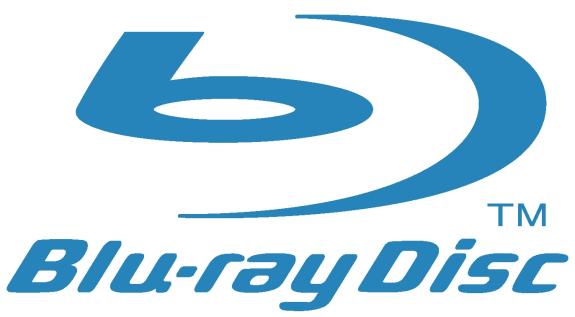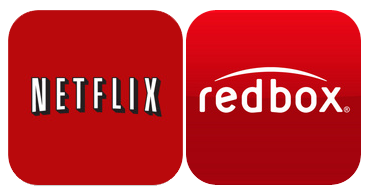Cinavia DRM: How I Learned to Stop Worrying and Love Blu-ray’s Self-Destruction
by Ganesh T S on March 21, 2012 11:00 AM EST- Posted in
- Home Theater
- Blu-Ray
- DRM
- Cinavia
DRM (Digital Rights Management) is intended to protect media from being played in an unauthorized manner. However, more often than not, it fails to serve the purpose. Many people in the content industry are fully aware that it is not possible to stop media piracy. They view DRM as a method to slow down the pirates. The panel discussion on anti-piracy measures at the HPA 2011 Tech Retreat compared this to using a key to lock a car, even though a thief with proper equipment could still steal it.
High definition content is valued by the content owners, resulting in extra efforts being taken to protect them from being pirated. For example, while standard definition Netflix streams play on a variety of platforms, high definition streams require more secure systems with protection across all stages of playback. Similarly, not much effort has been taken to stop the usage of open source DVD decrypters / decoders, which mean that the consumer doesn’t need to invest in a licensed player to play back DVDs. Open source software like VLC can play back protected DVDs without any issues.
Blu-rays, on the other hand, with their high definition content, are yet to be hacked enough to be played back with full experience using open source tools. There is a constant tussle going on between the decryption tool makers (who enable the Blu-ray disc content to become unprotected) and the Blu-ray publishers who don’t want this to happen (and try to find new ways to encrypt their Blu-rays without breaking player compatibility in the field). The net result is that almost every new Blu-ray fails to play back on a player if it doesn’t have the latest firmware updates. This is obviously a drawback for consumers who just want to put the disc in the tray and enjoy the movie.

In today’s piece, we will be concentrating exclusively on Blu-rays. A look at the market trends seems to indicate that online streaming services like Netflix and Hulu are overtaking conventional media distribution channels such as DVDs and Blu-rays. However, this doesn’t mean that optical media will die out anytime soon. Currently, a large number of consumers don’t have reliable enough Internet access to guarantee a good experience with premium streaming services. Market research indicates that Blu-ray sales have indeed shown an annual increase. This growth can be attributed to the low cost of Blu-ray players (some could be found for as low as $49 last November) and the rising number of $5 Blu-rays available in the bargain bins of various big box retailers. Blu-ray rentals from companies such as Redbox have also shown an increase in popularity.

The BDA sees Blu-ray shipments growing for the foreseeable future. However, they have also realized that the future of the Blu-ray industry lies in eventually adapting to the cloud / Internet infrastructure. The UltraViolet initiative is geared towards this. We will look at this in detail later in the piece.
The rise of VoD services will definitely threaten Blu-ray, particularly because of the ease of use associated with them. In almost all cases, one can start watching a movie on Netflix or Vudu with a few clicks. Compare this with current Blu-rays where users have to put up with a number of trailers and copyright messages before the movie starts playing. It is no wonder that consumers with high speed Internet often prefer services like Vudu over Blu-rays. Given this situation, Blu-rays continue to come with pesky DRM mechanisms. The latest in this lineup is Cinavia. Before going into its details, we will have a brief overview of all the DRM mechanisms involved in Blu-rays.










121 Comments
View All Comments
cbgoding - Wednesday, March 21, 2012 - link
"we can't but help"should probably be
"we can't help but"
ludikraut - Wednesday, March 21, 2012 - link
All of the mentioned issues in the article are why I don't own any BluRay discs and most likely never will. Ironically I own two BluRay players (both given away by Sony for free as part of other purchases), but until it becomes as easy, quick and cheap to use as watching a regular DVD I will never own any BluRay media.Even more ironic is that I own a Sony DVD (The Tourist) that refuses to play on my Sony BluRay player. LOL. I assume I could connect the player to the internet to let it update itself, but I refuse to connect anything that I consider to be a standalone device to my home network.
l8r)
SandmanWN - Wednesday, March 21, 2012 - link
Smells like BS to me. You "say" you won't hook up a bluray player but I can almost guarantee you have other devices like a cable/uverse/dish box on your network that goes out and downloads program data and firmware patches all the time without your knowledge. Managed modem by your ISP, cell phone and tablets on your wifi reaching out and checking for updates from your carrier. All kinds of devices on your network that are standalone.BlueAqua - Wednesday, March 21, 2012 - link
Physical media and DRM needs to die. I haven't bought any physical media in years now.In the last sentence you state that the consumers need to wake up and decide if it's worth it to us, but its really the industry that needs to wake up.
Exodite - Wednesday, March 21, 2012 - link
There's nothing inherently wrong with physical media, indeed it makes a lot of sense for most consumers.The only issue is the DRM nightmare, though that isn't really any better on (legally) digitally distributed media.
haukionkannel - Wednesday, March 21, 2012 - link
I think allso so. BD guality is so much better than what you can get downloaded, because it would reguire so much bandwide.And the only reason I really hate DVD and BD is that DRM and other stuff that makes it so difficult to watch my disks... "You need bios, upgrade" you need new version of..." and so on...
I want my 4k movies in so insane high guality that it would be unpractical to send them via internet and without DRM please... and is physical format... what ever that would be.
seapeople - Wednesday, March 21, 2012 - link
I don't understand the dichotomy between the droves of people who jump on and smear every review of a sub-premium monitor on this site (oh my, it's *e*-IPS!!?!?!?!) while an article on Blu-Ray's results in a near universal proclamation of streaming content adoration.It just seems to me there should be more of a middle ground between people willing to pay 3x-5x as much for a monitor that looks ever so slightly better and has juuuuust the right colors here and there versus people who don't care if their NetFlix streaming version of Transformers has periodic blocky fadeouts and frequent black crush highlighting the obvious heavy compression artifacts throughout.
Blu Ray is premium. You buy the 55" premium television, get the 7.1 booming surround sound system set up, buy your favorite popcorn, and pop your beautiful, high-quality Blu-Ray movie in. You don't turn on your cheap, crappy pseudo-HD compression nightmare streaming service just to save 2 minutes and feel smug about it.
chaos215bar2 - Wednesday, March 21, 2012 - link
Actually, you just described why I cringe just about any time I pay for any media. I do pay, most of the time, at least, since I don't really want to watch something I'm not willing to support by paying, but there is literally no convenient, high quality video source available.I won't touch Blu-ray for most of the reasons discussed above. All streaming I've tried is terrible, even if it will actually play at "720p". (Netflix and Hulu generally do select the maximum quality. Amazon has a tendency to play at the lowest quality even though my connection has never tested at less than 22 Mb/s.)
iTunes is fairly good, at least for 720p (I haven't tried 1080p yet), but most of what I watch is TV shows, and I don't really want to pay to own entire seasons that I'll only watch once. (The $0.99 rentals were nice while they lasted, but I'd be happy to pay even a bit more than that.)
The whole situation is just sad. I'm just waiting, hoping they figure it out eventually like the music industry did (mostly).
SlyNine - Wednesday, March 21, 2012 - link
Screw that man and screw your idea, I want to OWN my collection!jnmfox - Wednesday, March 21, 2012 - link
Always makes me think of this image:http://www.geek.com/wp-content/uploads/2010/02/pir...
I don't pirate but I correlate this to why I rip all my movies.
Studios wonder why people want to rip their moves to their HDs, for me this is one of the main reasons. I don't care about the extras (if I did I can always actually put in the disk) I just want to see the movie.